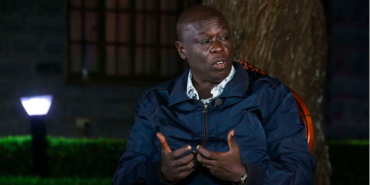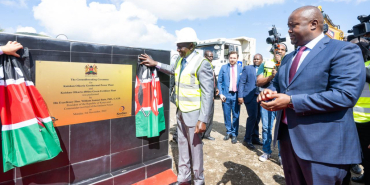45-Second Video Sparks Legal Clash in Jirow Murder Trial

A heated legal challenge has erupted in the High Court in Mombasa regarding the admissibility of video evidence in the trial of three suspects accused of murdering Isaac Kasim Jirow in 2018.
Makonde Ruwa Buni, Ngira Charo Karisa, and Eddlied Mandi Jilani are contesting the use of a video recording that purports to reconstruct the events surrounding Jirow's death, arguing it constitutes an inadmissible confession. The video, recorded by Commissioner of Police Joseph Muindi, was briefly screened in open court before defence lawyers intervened. The footage opens with the reading of the murder charge against the accused, who are alleged to have orchestrated and executed Jirow's killing on 8 March 2018, along the Mombasa-Malindi road.
The core of the defence's objection, led by advocate Jared Magolo, centres on the claim that the video is not a neutral reconstruction of events, but rather an unlawfully obtained confession. The footage initiates within the office of advocate Cleophas Nyameta, depicting Mr. Buni affirming the voluntariness of his statements, made without coercion. He is informed of the legal implications of his confession and acknowledges that the conversation is being recorded for evidentiary purposes.
The scene transitions to an open field, believed to be part of the crime scene, where Mr. Buni, flanked by police officers, begins recounting the events of the day Jirow was murdered. Mr. Buni's account describes receiving a call from Ms. Mandi instructing him to collect a vehicle from Gede stage at 8 am. The video was expected to detail how the suspects allegedly picked up Jirow from Nyali in Mombasa, transported him to Malindi, and ultimately to a remote thicket where his body was reportedly dumped and doused in acid to destroy evidence.
Mr. Magolo has submitted a formal application to reject the video as evidence, asserting it was recorded in violation of the laws governing confessions. He highlighted inconsistencies in the footage, including the abrupt shift from the outdoor scene to the advocate's office, where a caution is purportedly administered.
Critically, Mr. Magolo argued that the lawyer, not Mr. Buni, responded on behalf of the suspect, raising questions about the authenticity and voluntariness of the statements. “It is my belief, and my client’s instruction, that he neither understood nor comprehended what was going on,” Mr. Magolo told the court.
He further argued that the absence of a caution during the field recording and the presence of only police officers undermined the legality of the entire process, arguing it was an unlawful interview leading to an extracted confession. The prosecution, represented by Ms. Ngiri Wangui, counters that the video is a scene reconstruction and not a confession. She maintains it was intended to assist the court in visualising the events described by the accused, and does not constitute a formal admission of guilt.
The prosecution further argues that the written confession, already admitted in court, remains the primary basis of their case. Justice Wendy Micheni, presiding over the matter, previously ruled that video evidence may be presented to aid the court in assessing the circumstances surrounding the alleged crime.
“If at all, there were any torture or beatings, the court can be shown any signs of injuries or limps. Thus, I will know what weight, if any, to give to the confession,” she said.
The suspects claim the confessions and video recordings were secured through coercion, including physical abuse. These allegations, if substantiated, could significantly impact the admissibility and credibility of the evidence. The court is tasked with determining whether the video constitutes a legally valid reconstruction or an improperly obtained confession, a decision that could significantly shape the trajectory of the trial.
The written confession, recorded on 11 May 2018, before former Shanzu Principal Magistrate Lilian Lewa, provides a detailed account of the events leading to Jirow’s death. Mr. Buni's statement alleges that he and Mr. Charo were hired by Ms. Mandi to carry out the murder. The confession describes how the suspects picked up Jirow from City Mall in Mombasa, drove towards Malindi, and eventually strangled him with a belt in the vehicle. The body was later abandoned in a forest and doused with acid, reportedly by a fourth accomplice, Katana Karisa.
While Mr. Charo initially corroborated the account, he later recanted his confession. Nonetheless, the prosecution maintains that the statements implicate Ms. Mandi as the mastermind behind the killing. The motive remains unclear, though speculation has centred on Jirow’s pursuit of a Chief Officer position in Kilifi County. In April, Kilifi County Public Service Board Chairman James Mulewa denied that Jirow had offered a bribe to secure the job, stating that he was shortlisted but ultimately ranked last and failed to meet the 60 percent threshold required for selection.
The case is scheduled for mention on 30 July.








Add new comment